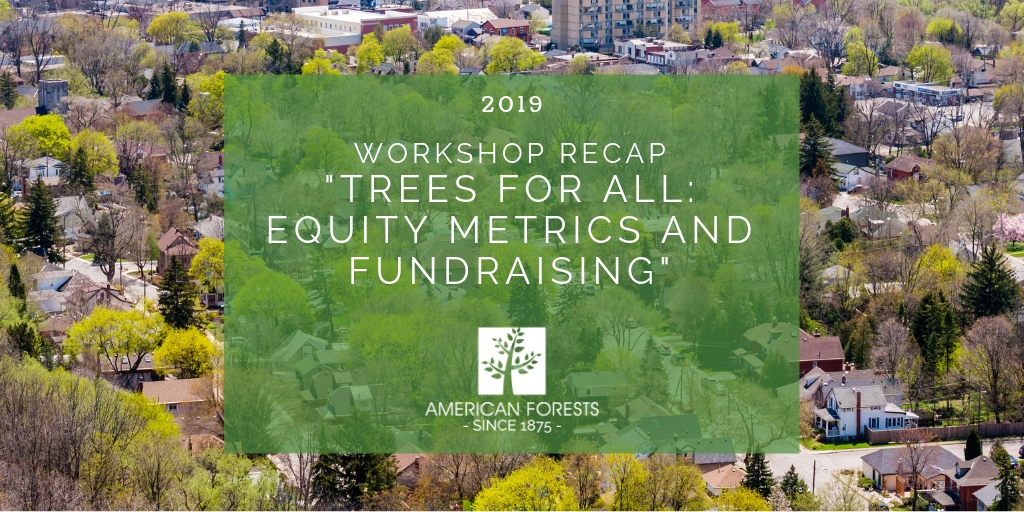
Workshop Recap – “Trees for All: Equity Metrics and Fundraising”
Trees for All: Equity Metrics and Fundraising was a day-long workshop, held in Annapolis’s Quiet Waters Park on Wednesday, May 29, 2019, that focused on building engagement and capacity of several community-based urban forest initiatives in the Anacostia watershed area.
Because lower-income and minority communities tend to be less involved in nearby tree planting and stewardship, the Trees for All workshop was specifically designed to help those community members to identify neighborhood priorities and target funding support for their implementation.
Workshop participants included local community partners from the District of Columbia and Prince George’s County, Maryland who have been part of a recent grant project focused on tree canopy, environmental justice, and community engagement in the Anacostia watershed.
During the workshop’s morning session, Dr. Christine Carmichael of the University of Vermont shared her research on how local urban forestry groups are using equity metrics to ensure their tree planting programs reflect the priorities of community members. “Do resident’s values inform local tree planting?” was the question under consideration, and Dr. Carmichael walked participants through less common metrics that can be used to justify planting — like measuring the number of community residents engaged in a particular planting, and gauging the community’s level of satisfaction with planting activities over time. She guided participants through concepts of distributional and procedural justice, prompted thoughtful questions about healing community trauma through planting, and shared tips for tracking an intergenerational cohort of residents in ongoing stewardship.
This morning session on equity metrics concluded with short presentations from participants. Each shared a vision for their community and the metrics that could help track the impact of their efforts. Romadulus Azuine, of Global Health Education Partnerships, shared his vision for how trees could impact the community his organization serves in Riverdale, MD. With a goal for Riverdale to be a place where people can breathe easier and enjoy nature, Azuine suggested that tracking asthma rates from area hospital admissions and minor breathing issues documented by health clinics may be useful barometers for his vision. These metrics could conclusively show that planting trees reduces air pollution, which in turn makes breathing easier for area residents.
In the workshop’s afternoon session, Shiree Skinner of Details Strategic Advisors shared what it means to be “fundraising ready,” and outlined some steps that grassroots groups might take to get to that point. Skinner explained the process of creating a development plan, designing and implementing systems for tracking progress, and building support for amplified fundraising through delegating tasks to board members and other volunteers. Equipped with some fundraising basics, workshop participants applied these elements to their visions from the morning session, building cases to support their work.
“This workshop helped me to more clearly articulate the impact of my program,” shared one participant. “I learned valuable information on how I can work with my local municipality in my projects.”
Another said: “I think the workshop raised important points about how we go about community engagement and how we assess the success of programs… and develop metrics. The first speaker gave me a lot to think about. I also think that the interactive portions of the program would be incredibly valuable to people that are new to the field or are currently developing programs designed to engage communities —about anything, not just trees.”
Hosted in collaboration with American Forests, Trees for All: Equity Metrics and Fundraising was part of a larger grant project supported by USDA Forest Service, Metropolitan Washington Council of Governments, DC Urban Forestry Division, Prince George’s County, and the Maryland Department of Natural Resources.